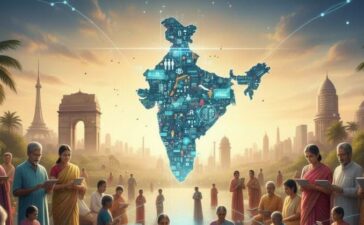The UPSC, or Union Public Service Commission, is a civil services organization owned by the Government of India and is responsible for conducting recruitment examinations for the All India Services and the central civil services of India. The civil services of India play an important role in ensuring the development and progress of the country. The Engineering service examination conducted by UPSC is one of the most sought-after by aspiring engineers who are looking for a secure and stable job in the government sector. This article will provide an in-depth examination of the Engineering Service UPSC syllabus to understand what is expected of those aspiring to crack the exam and make it to the service. Alongside this, you will need a good ESE UPSC coaching exam.
Table of Content
An In-Depth Examination of the Engineering Service UPSC Syllabus
Overview of Engineering Service UPSC Syllabus
Understanding the Eligibility Criteria
Important Tips to Crack the Exam:
Overview Of Engineering Service UPSC Syllabus

The Engineering Service UPSC Syllabus focuses on the specializations in engineering that are related to civil services. The exam covers topics in Civil, Mechanical, Electrical, and Electronics Telecommunication engineering and tests a candidate’s knowledge of those areas.
Other subjects include, Engineering service usually covers areas such as
- Civil and Structural Engineering, Surveying and Geology Transportation,
- Sanitary and Environmental Engineering,
- Mechanics,
- Fluid Mechanics and Fluid Machines,
- Thermodynamics
- Industrial Engineering, etc.
Topic Emphasis
The emphasis of the syllabus is on topics related to engineering, its principles, and its application in various engineering fields. Some of the topics that are included in the
- Structural Analysis
- Design of Structures and Elements, Strength of Materials
- Mechanics of Solids,
- Engineering Mechanics
- Highway Engineering
- Hydraulics
In addition to the topics mentioned above, the syllabus also covers the management aspect of engineering. This covers topics such as
Applied Subjects
- Production Management,
- Project Engineering Management,
- Engineering Materials,
- Maintenance Engineering
- Engineering Economics, etc.
Understanding The Eligibility Criteria
In order to qualify for the Engineering Service examination, the candidates must possess a bachelor’s degree in Engineering/Technology/Architecture or a master’s degree in any of the disciplines mentioned above from a recognized UGC-approved institute. Additionally, the candidates must also have a valid GATE score or a valid UPSC Engineering Service examination score.
Exam Structure
The Engineering Service examination consists of three stages – Preliminary Exam, Main Exam, and Personality Test. The Preliminary Exam is held every year in the month of May and consists of two objective-type papers – Paper I and Paper II.
Paper I focuses on topics related to general studies, general engineering aptitude, and general English, while Paper II tests the knowledge of a particular engineering discipline.
The Main exam is divided into four conventional-type papers – Paper I, II, III, and IV. Paper I and II focus on general Engineering and Engineering design Engineering, respectively. Paper III and IV test the candidate’s expertise in the mining and metallurgical, agricultural engineering, and naval architecture disciplines.
The Personality Test is conducted to assess the suitability of the candidate for an engineering service. This is done by interviewers who are specialists in the engineering domain.
The Selection Process
The selection process for the Engineering Service examination consists of two stages – the Preliminary Exam and the Main Exam. Candidates who clear the Preliminary Exam are eligible to appear for the Main exam. Candidates who clear the Main exam will then be called for the Personality Test.
Important Tips To Crack The Exam:
- Create a Study Plan
Once you have understood the syllabus, the next step is to create a study plan. This plan should outline the topics you need to go through, the time allocated for each topic, and any other materials you need to prepare. Doing this will help you make strides towards acing the exam as it will give you structure and make the process easier. Furthermore, you should also include breaks in your overall plan to ensure that your mind remains fresh throughout the journey.
- Set Achievable Goals
Setting realistic goals during your preparation is essential for success. Start by breaking down your entire syllabus into smaller chunks and then setting achievable goals based on how much time you have. This will ensure that you stay focused and motivated while studying. Additionally, you should also reward yourself when you hit each goal. Rewarding yourself in this manner will help you stay on track and gain the most out of your preparation.
- Utilize Online Resources
The internet is a goldmine of resources for UPSC Engineering Services Exam preparation. From websites with syllabus-related information to study material and previous year’s question papers, you will find plenty of content to help you ace the exam. Utilize these resources to supplement your preparation and stay up-to-date with any new updates or changes to the syllabus.
- Practice Mock Exams
Mock exams are the best way to prepare for the UPSC Engineering Services Exam. It will give you an indication of how well you’ve prepared and help you identify any weak points in your preparation. Additionally, it will also help you improve your time management skills. Ensure that you take mock exams regularly to gain the most out of them.
- Track Your Progress
Progress tracking is an important part of the UPSC Engineering Services Exam preparation routine. Keeping track of your progress will help you identify sections where you need to invest more time and the topics that you’ve already mastered. Additionally, tracking your progress will also provide you with a realistic understanding of how far you’ve come, thus helping you stay focused and motivated.
- Strategize Time Wisely
Time management is key to acing the UPSC Engineering Services Exam. You should strategize your time in line with the syllabus and allocate more time to topics that require more concentration. This will help you cover all sections of the syllabus and also help you focus your energy on difficult topics. Additionally, it will also reduce the chances of making mistakes due to time constraints.
Conclusion
The UPSC Engineering Services Exam is a highly competitive exam that requires a great deal of dedication and hard work to pass. It is an excellent opportunity to work in the government sector and can lead to a rewarding career. It is important to be familiar with the exam pattern, syllabus, and other related topics in order to successfully prepare for the exam. Studying hard and practicing mock tests can help aspirants gain the necessary skills to excel in the exam. With the right preparation and dedication, anyone can crack the UPSC Engineering Services Exam and make their dreams come true. Alongside this, you will need good UPSC ESE coaching to crack the examination.
FAQs
Is it necessary to solve previous year’s question papers with solutions?
Ans: Yes, it is highly recommended that aspirants practice the previous year’s question papers with solutions. By doing so, aspirants can evaluate their performance, identify their mistakes, and also learn the correct approach to solving the questions.
Can I include diagrams or bullet points in my essay?
No, candidates shouldn’t include diagrams or bullet points in their essays. They should use whole sentences and paragraphs to communicate their ideas and arguments.
Is it required for my essay to use sophisticated words and sentences?
No, applicants should avoid using difficult terms and phrases in their essays. Candidates should concentrate on using precise language to convey their thoughts and opinions.
Follow Us: Facebook | Instagram | Twitter |
Youtube | Pinterest | Google News |
Entertales is on YouTube; click here to subscribe for the latest videos and updates.














